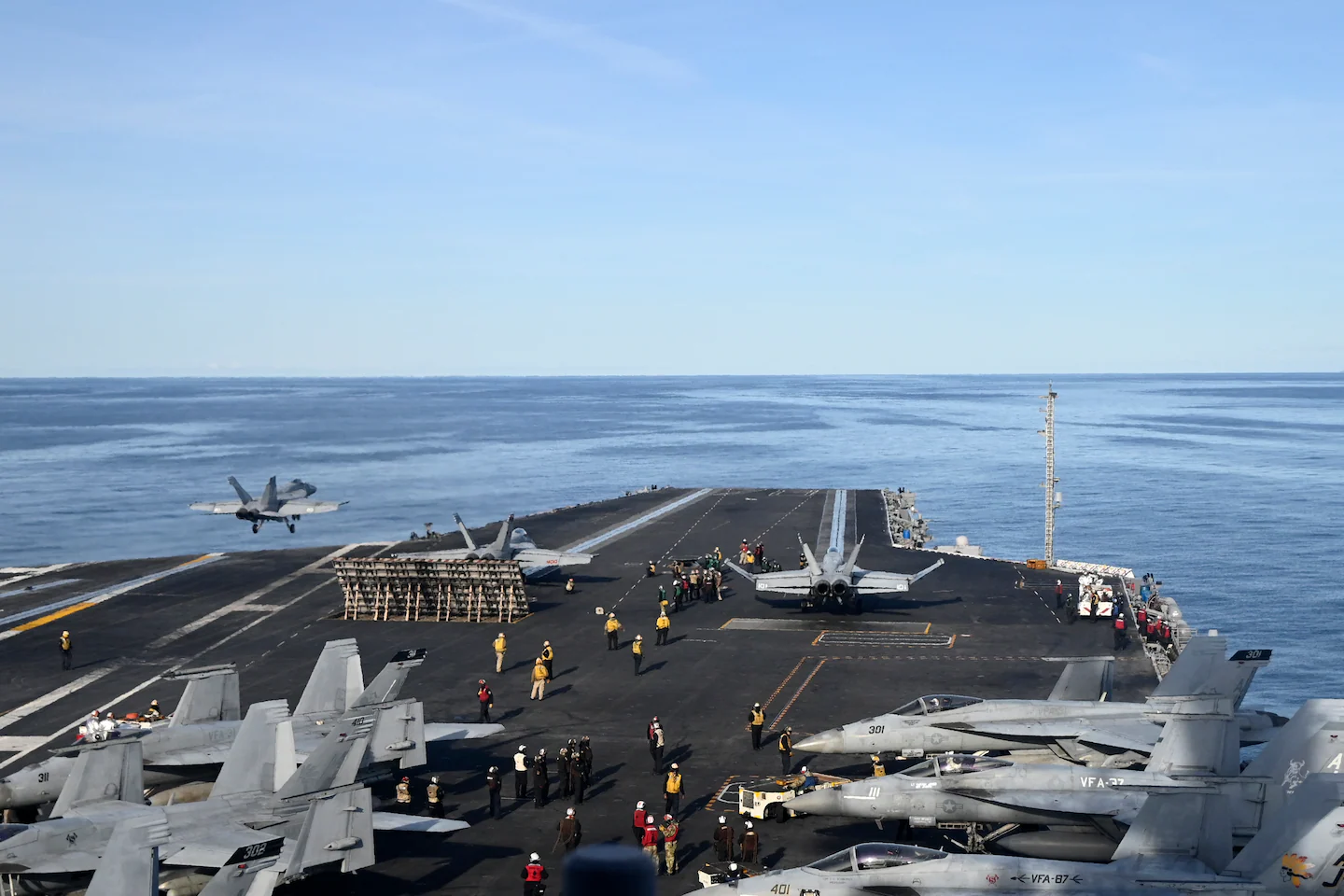Washington, D.C. — Former Defense Secretary Leon Panetta has sounded a stark warning about rising tensions between the United States and Venezuela, suggesting that a single misstep could ignite what he described as a “small but very real war” in America’s own hemisphere.
Speaking at a recent policy forum in Washington, Panetta, who served under President Obama, said that while Venezuela may not pose a direct military threat to the U.S., the growing volatility in the region could draw Washington into an armed confrontation faster than policymakers expect.
“History has shown us that it’s never the big wars we plan for — it’s the small ones we stumble into,” Panetta said. “When you’ve got military assets deployed near a hostile government, a single misjudgment or accidental exchange can trigger a spiral that’s very difficult to control.”
Tensions on the Rise
Relations between Washington and Caracas have been strained for years, but over the past few months, intelligence reports and satellite imagery have pointed to renewed Venezuelan troop movements near its western borders, along with increasing collaboration between the Maduro government and several anti-U.S. actors, including Iran and Russia.
The Biden administration has responded cautiously but firmly, stepping up surveillance flights in the Caribbean and maintaining a limited naval presence to deter potential threats to commercial shipping and U.S. interests in the region.
While Pentagon officials have characterized these moves as “routine operations,” Panetta believes the line between deterrence and provocation is becoming dangerously thin.
“The U.S. can’t afford to underestimate the risks,” he said. “Every time a drone crosses contested airspace or a warship moves within striking range, there’s a potential flashpoint. The Venezuelan regime is unpredictable — and in moments of political weakness, dictators often look for external enemies to rally their base.”
The Political Calculus
Inside Venezuela, President Nicolás Maduro faces growing unrest and economic collapse. Inflation remains astronomical, oil exports have declined sharply, and opposition forces — though fragmented — are regaining momentum. Analysts say the embattled leader is desperate for leverage, and confrontation with the United States could provide just that.
For Washington, the challenge is equally complex. While U.S. policymakers want to avoid any perception of interventionism reminiscent of past Latin American entanglements, there’s also pressure to counter the growing presence of Russian and Iranian advisors in the region.
Panetta argued that this combination of insecurity and military posturing on both sides creates the perfect recipe for an accidental conflict.
“We’ve seen this before,” he noted. “From the Bay of Pigs to Iraq, the U.S. has often entered conflicts without a clear sense of end-state. The last thing we need is another war of uncertainty, especially in our own backyard.”
The Military Dimension
In recent weeks, the Pentagon has quietly repositioned assets in the Caribbean and along the Gulf of Mexico. Defense officials insist these deployments are defensive, designed to ensure regional stability and protect sea lanes vital to U.S. energy supplies.
Still, Panetta’s warning underscores a growing concern within the national security community — that the U.S. is entering a period of strategic overextension. With Washington already deeply involved in supporting Ukraine and Israel, and maintaining deterrence in the Indo-Pacific, a new front in Latin America would stretch both military and political resources.
“The United States has global commitments,” Panetta said. “We cannot open another theater of conflict without clear objectives, congressional oversight, and a real exit strategy.”
He emphasized that the most dangerous wars are those that begin “almost by accident,” when both sides misread each other’s intentions.
A Diplomatic Off-Ramp
Despite the tough rhetoric, there are still signs that diplomacy remains an option. Some regional leaders, including those in Brazil and Colombia, have reportedly offered to mediate between Washington and Caracas. Panetta urged the administration to lean on those channels and “avoid any action that might look like an ultimatum.”
“If we’re going to pressure Venezuela, it has to be through smart power — not saber-rattling,” he said. “Economic leverage, regional alliances, and moral credibility are far more effective than missiles or sanctions alone.”
Panetta also cautioned that Washington should not underestimate the power of nationalism within Venezuela. “Every time an American official threatens military action, it strengthens Maduro politically. The message should be firm but measured: we support democracy, but we won’t hand our adversaries a propaganda victory.”
Lessons From the Past
For Panetta, the lesson is as much historical as strategic. “Every administration faces moments when deterrence blurs into escalation,” he said. “The art of statecraft is knowing where that line is — and making damn sure we don’t cross it by mistake.”
He recalled how similar miscalculations in the early stages of U.S. involvement in Iraq and Afghanistan led to decades of entanglement. “We can’t keep repeating that cycle,” he said. “The American people deserve clarity — not another open-ended confrontation.”
The Bottom Line
Panetta’s remarks are a reminder that even “small wars” can have enormous consequences. The U.S. may not intend to fight in Venezuela, but with ships, planes, and intelligence assets already in the region, the margin for error is shrinking.
As one senior Pentagon adviser put it privately, “It’s not the big wars that scare us. It’s the ones that start with a radar blip, a nervous commander, and a phone call that comes too late.”
If Panetta’s warning holds true, the next great test of American restraint may not come from Europe or the Pacific — but from just a few hundred miles south of Florida.

